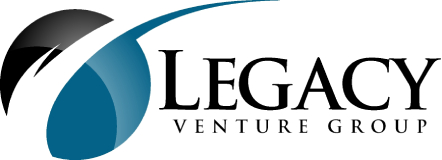
How to sell your Florida construction company
Preparing for the Sale of Your Construction Company: Key Financial Documents and Confidentiality Strategies
When an HVAC company, plumbing company, roofing company, or electrical contracting company owner plans to sell their business, there are many factors to consider. The process of selling a construction-related business requires attention to detail, preparation, and above all, patience. One of the most critical aspects of preparing your business for sale is ensuring that your financials are in order and that confidentiality is maintained throughout the process.
At Legacy Venture Group and Tampa business brokers, we specialize in helping business owners through this complex process. Below are the key things you need to consider to make your business as attractive as possible to potential buyers while ensuring that confidentiality is upheld every step of the way.
Key Financial Documents to Prepare
When selling a construction business, potential buyers will want to see the financial health and operational history of the business. Providing accurate and thorough financial documentation helps establish credibility and gives buyers the confidence they need to move forward with the transaction. Here are the essential financial documents you’ll need:
1. Tax Returns (3-7 Years)
Buyers will want to see at least 3 to 7 years’ worth of tax returns. These returns show the company’s actual income and tax liabilities, which help buyers assess the overall profitability of the business. Be sure that your tax returns are up-to-date and reflect the true earnings of the company. If personal expenses have been run through the business, work with your accountant to adjust and clarify these items before presenting them to buyers. if your accountant is really busy sometimes it’s good to bring in an extra set of hands such as a bookkeeper or someone who’s excellent at QuickBooks to get everything up-to-date. Great resource think about organizations like the Business Transition Council for finding other professionals besides your professional business intermediary or business broker of Tampa.
2. Balance Sheets (3-7 Years)
Your balance sheet provides a snapshot of your company’s financial health at any given point in time. A buyer will want to review 3 to 7 years of balance sheets to understand how your business assets, liabilities, and equity have changed over time. The balance sheet should reflect the company’s real assets—including any inventory, equipment, and receivables—and should not include personal items like vehicles or personal loans that could cloud the financial picture.
3. Profit & Loss Statements (3-7 Years)
Also known as income statements, profit and loss (P&L) statements show how your business generates revenue and handles expenses over time. Potential buyers will look closely at the P&L statements to understand the business’s gross margins, operating costs, and net income. Offering 3 to 7 years of P&L statements provides a clear picture of the business’s performance, stability, and growth potential.
4. Year-to-Date Financials
It’s important to provide year-to-date (YTD) financial statements when selling your business. These should include a current balance sheet and P&L that show the financial performance of the business up to the current date in the fiscal year. Buyers will want to know how the business has performed recently, and YTD financials give them insight into how things are going in the present moment.
5. Updated Inventory Lists
Many construction businesses rely heavily on equipment and inventory. Buyers will want to see an updated inventory list that includes the equipment, tools, vehicles, and other assets that are part of the business. This list should include the condition and estimated value of each item. If you have personal vehicles or assets mixed in with business assets on your balance sheet, now is the time to remove them, as this can complicate due diligence.
Confidentiality Is Crucial
Maintaining confidentiality during the sale process is essential. If employees, customers, or competitors find out that your business is for sale, it could jeopardize relationships, disrupt operations, or devalue the company. Below are some strategies for maintaining confidentiality while still attracting potential buyers.
1. Use a Teaser Document
One effective way to attract buyers while maintaining confidentiality is to create a teaser document. This is a one-page summary that highlights the key selling points of your business without revealing its name or location. The teaser document should provide enough information to entice potential buyers but keep details vague enough to protect your identity.
2. Sign Non-Disclosure Agreements (NDAs)
Every potential buyer should be required to sign a non-disclosure agreement (NDA) before receiving any confidential information about your business. NDAs legally bind buyers from sharing sensitive information about the company’s financials, operations, and other details. It’s also a good practice to have key employees and even trusted family members sign NDAs to prevent any leaks.
3. Be Careful Who You Share Information With
Avoid sharing sensitive information about the sale with people who don’t need to know. This includes well-meaning salespeople, contractors, or other business contacts who might inadvertently share the news with others in your industry. Restrict information to those who need to be involved and have signed an NDA.
4. Remove Personal Items from the Balance Sheet
It’s common for business owners to have personal vehicles or other assets listed on their company’s balance sheet, but it’s important to remove these items before entering the sale process. Personal assets can confuse buyers during due diligence and could lead to questions about the company’s financial health. Clean, clear, and accurate financials are essential to a smooth sale process.
Patience and Professionalism
Selling a business, especially one in the construction industry, requires patience and a strategic approach. The process can take several months to a year or more, depending on market conditions and the complexity of your business. Working with a professional business broker or business transition intermediary can make the process smoother and more efficient.
At Legacy Venture Group, we work closely with business owners to ensure their financials are in order, confidentiality is maintained, and that the business is positioned attractively for buyers. As Tampa business brokers, we understand the unique challenges of selling construction-related businesses and can provide the guidance and support you need to maximize your business’s value.
Conclusion
If you are considering selling your HVAC company, plumbing company, roofing company, or electrical contracting business, now is the time to start getting your financial documents in order and ensuring your business is ready for the market. By preparing tax returns, balance sheets, profit and loss statements, and inventory lists, and maintaining strict confidentiality, you can increase the chances of a successful sale. Working with the Legacy Venture Group business brokerage team and other professional advisors will help you navigate the process with confidence and achieve the best outcome for your business.
Remember, patience and attention to detail are key. With the right preparation, you can ensure a smooth transition and maximize the value of your construction business.

